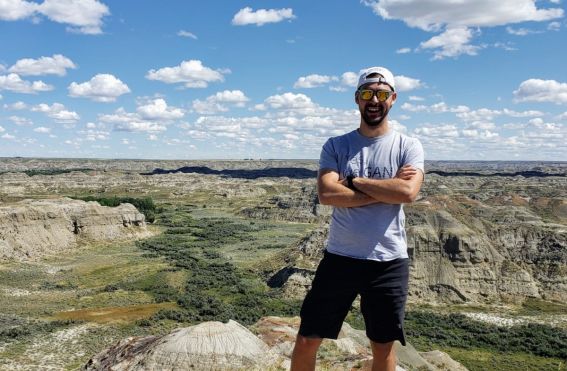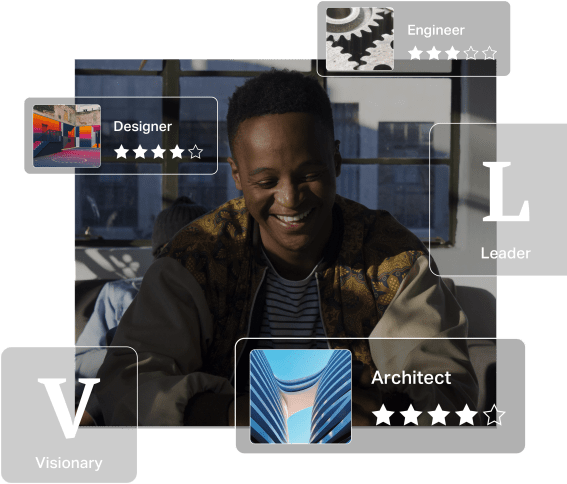The CareerExplorer Discord Community had the opportunity to speak to Kristin in a live, fireside Q&A.
Kristin is the Director of Marketing + Content at Sokanu. She has a Master’s Degree in Publishing and has led content teams at magazines, agencies, and in tech.
The transcript below has been modified and abridged from the original conversation.
Career Start
Did you always envision yourself in a marketing/publishing role, or was your original career plan something very different?
I grew up with an English professor for a dad so I always loved reading and writing. When I was young, I always read the editor’s letter in magazines and that was an early cue that I wanted to go into publishing. So I’ve been on this path for a long time! That said, it’s an evolving industry and now I work more broadly in marketing, so my career path has certainly evolved.
Resources and Advice for Marketing Professionals
How does one go about finding a creative career? I can’t think about spending my life at a 9–5 job doing the same thing every day.
For sure — neither can I. There are many careers that offer variability in the day-to-day. I think you can find creativity in so many different fields, whether in arts, or sciences, or business. I would think about broader fields you’re interested in and then talk to people in those industries and ask them what a day in their life looks like.
Do you think that a traditional marketing/business degree is needed to enter the field? Or with all of the new certificates/programs out there, can one enter the field another way?
No, you don’t need a traditional marketing/business degree to enter the field, though those are great as well. I find a lot of folks I’ve worked with come from a variety of backgrounds and transition into marketing. There are some great online programs and certificates, for example:
Coursera has a great digital marketing course (and if you’re a Sokanu member, you get discounts on Coursera courses and guided projects) .
Hubspot has a range of good free courses, and so does Google.
Workplace Experiences
How have you found the experience of working at agencies, magazines, and now internally for a company? Do you feel that there’s a difference between the environments, or is it a lot of the same thing? Where would you recommend someone starting in the field kick off their career?
I found it very different at each one. Working at a magazine is all about curating a particular perspective on the landscape of culture today, depending on what you cover (i.e. are you writing about arts, design, food, etc.). It also involved working with PR agencies (i.e. reading press releases, attending events and launches), finding great writers to be columnists, and of course the business side of working with advertisers.
At an agency, you work on projects for a huge range of clients, so there’s a lot of variability in the work. When you’re in-house, you get to go deep across all marketing functions and have full control over the strategy and execution.
For starting out, it depends what kind of work environment you want. Agencies are very demanding, but you get great insight into how tons of companies operate as you work with different clients. Working in-house or client-side gives you more in-depth experience and time to focus on one thing. Magazines will really sharpen your editorial skills.
What do you love to do in regards to marketing?
I love figuring out the story that will resonate with an audience and creative ways to bring that to life, whether through an email, video, blog post, etc. I think brands — like magazines — can tell amazing stories.
Is there any piece of advice that you can give to someone just starting out? Would you have done anything differently?
Good question! As a writer, I wish I had taken more notes about life. Just written anything down — things I’m observing, sights, smells, feelings. Little vignettes about life that I can refer back to instead of my memory. As general career advice, I would say don’t be afraid to be wrong and ask for help. There were times I was totally drowning or pretending I knew something I didn’t, and I should have asked for help or spoken up. Saying you don’t know something is a sign of maturity and gives you an opportunity to learn.
And to be clear — it’s natural to struggle with this. I still do.
Is there a lesson from your master’s training that you find still sticks out in the work you do today? Are there any lessons that you think stand the test of time, regardless of the technological changes in your industry?
Doing a Master’s Degree in Publishing (at Simon Fraser University) covered everything from editing to design, history, technology, and marketing. Some of the most enduring lessons I learned there were in the editorial field. The art of writing clear copy is timeless, and I think well worth the investment. Learning how to be an editor is learning how to coach people and give good feedback, which is also very applicable. And I think the last thing is the humbling realization that things change very quickly in this world. Everything I learned in tech and marketing I’ve had to relearn again, and again, and again. So I think the lesson is to learn the fundamentals, and then be disciplined enough to keep pace with the changes.
What is the best way to manage a creative team?
I think it’s important to create environments that foster creative thinking — giving people space to think big and blue sky, and then honing that down into a more specific, actionable plan. Managing any team is about understanding each person’s individual strengths and where they want to grow. It’s also important to make sure everyone feels like they’re contributing and understanding the impact they are making on the business, while getting recognition for their expertise and learning where they can improve.
On Writing
How do you stay focused on one writing project until the end? I’ve started dozens of projects but have never gotten past the first chapter.
I get myself an accountability partner. I tell them my goal and they help keep me on track. My motto is “say what you’re going to do, and then do as you say” but sometimes we all need a little help with that. I also think it’s fine to put a project down and come back to it when the time feels right. I’ve done that before. Sometimes I pick things up years later — I do that with books I’m reading, too.
Do you keep a journal of some sort?
Yes, I do morning pages, which was coined by Julia Cameron in a book called The Artist’s Way. Every morning I write three pages freehand, nonstop. It’s called “brain drain” and it clears my head for the day. I highly recommend this practice. The second thing I do is create journaling prompts for myself to answer — I find I can’t journal otherwise. For example: what did you learn over the last six months? What was a highlight of your week? I find this structured approach helps me.
Managing a Disability in the Workplace
Has your hearing loss been a challenge in the workplace?
It definitely has, but I’ve learned over time how to advocate for myself. I find if I address what I need proactively (i.e. if I’m leading a meeting, I’ll ask people to get my attention visually rather than shouting out a question, or I’ll ask people to face me when they speak) that works well, rather than pretending I don’t need those things.
Career Personality
Do you have to be an extrovert to do the type of work you do?
No, I am very much an introvert. Being a writer and editor involves a lot of solo work, so it’s good to be comfortable with alone time. Being in marketing or magazine publishing is much more social, but I know a lot of introverts who also thrive in those types of roles.
Reflection and Future-thinking
Do you enjoy your career?
I do. There is a lot of variety when you work in marketing. It gives you creative freedom, and when you really believe in the product or company mission, it makes the work all the more exciting.
Find weekly Live Q&As in the CareerExplorer Discord Community.


